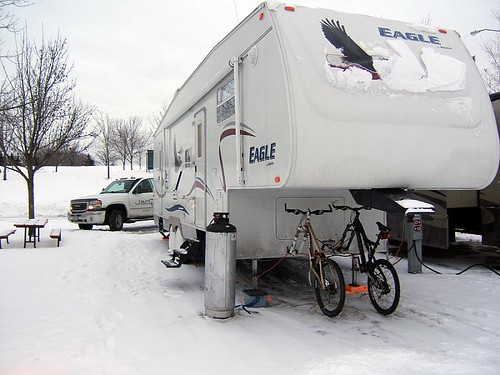If you’re an RV enthusiast or planning a trip in your motorhome, one common question that may arise is will RV furnace run on battery power. It’s a valid concern, especially if you are planning on boondocking or camping in remote locations without access to electricity. In this article, we’ll explore the possibility of running your RV furnace solely on battery power, providing you with valuable information to ensure your comfort and warmth during your adventures on the road. So, let’s dive in and find out if your RV furnace will run on battery!
Understanding RV Furnace Power Sources
RV furnaces are essential for keeping you warm and comfortable during your trips, especially in colder climates. However, one common question that many RV owners have is whether their furnace can run on battery power. To answer this question, it’s important to understand the different types of RV furnaces and the power source options available.
Types of RV Furnaces
There are primarily two types of RV furnaces: propane and electric. Propane furnaces are the most common type found in RVs. They use propane as fuel, which is stored in a tank in the RV. Electric furnaces, on the other hand, use electricity to generate heat. They are less common in RVs and are typically found in newer, more modern models.
Power Source Options for RV Furnaces
The power source for RV furnaces depends on the type of furnace you have. Propane furnaces require a propane supply, either from a built-in tank or an external propane cylinder. Electric furnaces, as the name suggests, require electricity to operate. Typically, this electricity comes from either shore power or a generator.
Powering an RV Furnace with Batteries
While propane and electric are the most common power sources for RV furnaces, it is possible to run your furnace on batteries. However, there are several factors to consider before opting for this power source.
RV Battery Basics
First and foremost, it’s essential to understand the basics of RV batteries. RVs typically use deep cycle batteries, which are designed to provide a steady amount of power over an extended period. These batteries are different from the starter batteries used in cars, as they are designed to handle multiple charge and discharge cycles.
Battery Capacity and Power Draw
To determine if your RV furnace can run on batteries, you need to consider the battery’s capacity and the furnace’s power draw. The capacity of a battery is measured in amp-hours (Ah) and indicates how much energy it can store. The power draw of the furnace is measured in watts (W) and tells you how much power it consumes.
To calculate how long your furnace can run on batteries, you need to divide the battery capacity (Ah) by the furnace’s power draw (W). For example, if your battery has a capacity of 100 Ah and your furnace draws 20 W, you can expect your furnace to run for approximately five hours.
Wiring an RV Furnace to the Battery
To power your RV furnace with batteries, you will need to connect the furnace to the battery using appropriate wiring. It’s crucial to follow the manufacturer’s instructions and guidelines when wiring your furnace to the battery to ensure safe and efficient operation. It may also be necessary to install an inverter to convert the battery’s DC power to AC power if your furnace operates on AC power.

Other Factors to Consider
When considering running your RV furnace on batteries, there are a few other factors to keep in mind.
Battery Charging Options
Batteries need to be recharged regularly to maintain their power. To ensure a steady power supply for your furnace, you need to have a reliable battery charging option. This can be done through solar panels, an onboard generator, shore power, or even charging your batteries while driving. Consider what charging options are available to you and how frequently you will be able to recharge your batteries.
Battery Life and Maintenance
Running your RV furnace on batteries can have an impact on the overall life and health of your batteries. Constantly discharging your batteries to run the furnace can shorten their lifespan. It’s important to monitor your battery levels, recharge them regularly, and properly maintain them to maximize their lifespan. This includes cleaning the terminals, checking the water levels (for flooded lead-acid batteries), and ensuring they are properly secured.
Alternative Heating Options for RVs
While running your RV furnace on batteries is possible, there are alternative heating options that you may want to consider.
Propane Heaters
Propane heaters are a popular choice for RV owners due to their efficiency and affordability. These heaters use propane as fuel and provide excellent heat output to keep your RV warm. They do require a propane supply, but most RVs come equipped with a propane tank. Propane heaters are relatively easy to install and operate, making them a convenient alternative to running your RV furnace on batteries.
Electric Heaters
If you have access to shore power or a reliable generator, electric heaters can be an excellent heating option for your RV. Electric heaters come in various sizes and styles, including portable options and built-in options. They are typically more energy-efficient than RV furnaces and can provide consistent heat. However, it’s essential to consider power consumption and the capability of your electrical system when using electric heaters.
Wood or Pellet Stoves
For RVers who prefer a more rustic and cozy heating option, wood or pellet stoves can be a viable alternative. These stoves use wood or pellets as fuel and can provide ample heat to keep your RV warm. However, installing and using a wood or pellet stove in an RV requires careful planning and consideration of safety measures. Adequate ventilation and proper installation are crucial to ensure safe operation.
Tips for Efficient Heating in an RV
Regardless of the heating option you choose for your RV, there are several tips to help maximize heating efficiency and keep your RV cozy and warm.
Insulating the RV
Proper insulation is key to preventing heat loss and maintaining a comfortable temperature inside your RV. Insulate the walls, ceiling, and floor of your RV using materials specifically designed for this purpose. Additionally, seal any gaps or drafts to prevent cold air from entering and warm air from escaping.
Using Space Heaters
In addition to your RV furnace or alternative heating option, using space heaters strategically can help distribute heat more efficiently. Place space heaters in areas where you spend the most time, such as the living area or bedroom. This can provide targeted heat and reduce the reliance on the main heating system.
Location and Ventilation
When using any type of heater in your RV, it’s crucial to consider its placement and ensure proper ventilation. Always follow the manufacturer’s guidelines for safe placement and distance from flammable materials. Additionally, ensure that your RV has adequate ventilation to allow fresh air to circulate and prevent the buildup of carbon monoxide or other potentially harmful gases.
Conclusion
While RV furnaces are primarily designed to run on propane or electricity, it is possible to power them with batteries. However, before opting for this power source, it’s important to consider factors such as battery capacity, power draw, and charging options. Additionally, alternative heating options like propane heaters, electric heaters, and wood or pellet stoves can provide efficient and reliable heating for your RV. By following the tips for efficient heating and considering the unique requirements of your RV, you can stay warm and cozy during your travels, no matter what power source you choose.


